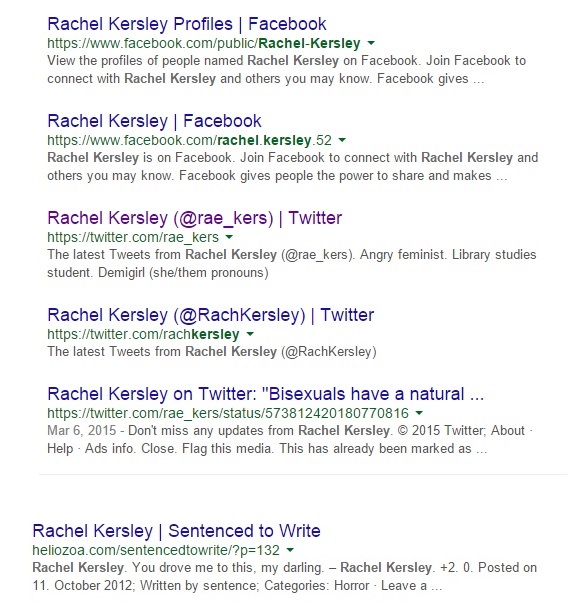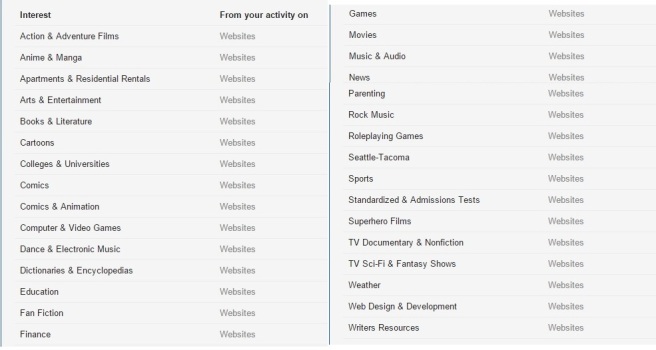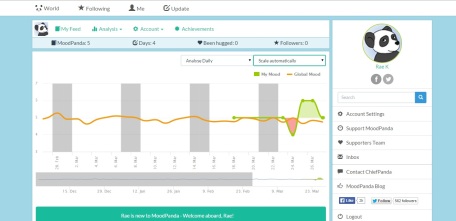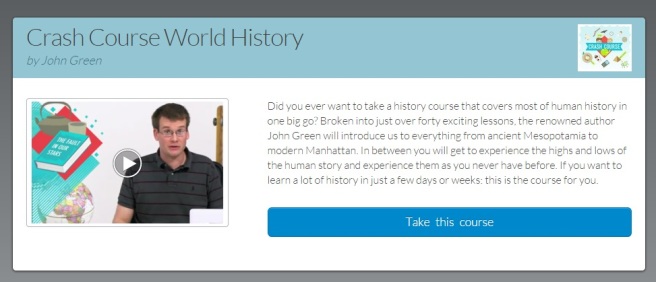This post is going to be continuing the trend of putting things under cuts, because not only is it relatively long, it’s also a little image heavy. Have fun with that I guess?
Online Communities (Or: Rae has Feelings)
First up, this post has literally nothing to do with my play activity this week, which can be found here. That’s because gamification’s fun, and I could probably talk about it for a while, but I have FEELINGS about online communities. Feelings that are probably extensive enough to warrant a read more.
Gamification Badges
After this fortnight’s gamifying, I’ve collected a whole bunch of interesting badges:
Privacy, and other nice thoughts
So in shocking news, internet searches revealed that there is really not a lot of information out there about me: Searching Pipl for ‘Rachel Kersley’ returned my Facebook and twitter accounts (as well as a number of accounts belonging to other Rachel Kersleys:

The twitter account obviously doesn’t have a great deal of personal detail available, and the Facebook account is almost untouched(mostly because of the fun anxiety issues I’ve talked about before). Meaning mostly that the available information is accurate, but not exactly informative. The same search on google gave the same sort of results, plus a hit from a writing site I submitted to a few years ago:

Searching for ‘Rae Kersley’ on google didn’t turn up any actual results, just a link to my google+ profile (also? Multiple spelling suggestions. Google does not seem to think Kersley is an acceptable word):

I wouldn’t have been surprised to find a bit more information, probably in the form of other people mentioning me, but I was pretty much expecting barely any information – again, I don’t tend to post things online that much. Beyond searching the internet generally, I also checked out https://www.google.ca/settings/ads, a site that lets you look at the information google has on you that influences what advertising you see, all based on the websites you visit. It’s occasionally disturbing, as a reminder of a complete lack of online privacy, but mostly it’s interesting and kind of hilarious:  Like, where did Catalan come from? It is honestly a complete mystery. On a less hilarious note, the edit options for gender only have male and female, which is disappointing and also kind of odd, because google+ has non-binary options, which you would think would also be available for other google related things, but apparently not. The more entertaining part, for me, is the interests section, mostly because I like trying to guess what sites I’ve been on that google thinks I’m interested in Seattle-Tacoma or sports:
Like, where did Catalan come from? It is honestly a complete mystery. On a less hilarious note, the edit options for gender only have male and female, which is disappointing and also kind of odd, because google+ has non-binary options, which you would think would also be available for other google related things, but apparently not. The more entertaining part, for me, is the interests section, mostly because I like trying to guess what sites I’ve been on that google thinks I’m interested in Seattle-Tacoma or sports:  Mostly, though, the interest section is reasonably accurate, which feels like the point where I should be concerned (because internet privacy) but I’m kind of…not. In theory I am, of course, at least in the abstract, because privacy is important, and people should have at least the option of it, but when it comes to me, and what’s available on the internet I’m just not really bothered. As has been established in some of my other posts, I’m not exactly the most private person in the world. I have definite concerns about privacy and mandatory data retention, but they don’t really relate to me personally – or at least, I’m not hugely concerned that there’ll be much of a direct impact on my life because of them. My worries are more to do with the fact that what essentially boils down to constant widespread governmental spying is part of a larger societal trend towards a cyberpunk dystopia. Primarily, I have no doubt that even if there are good intentions regarding data retention it will turn into a tool of oppression because we live in a society built on the oppression of ‘minorities’, full of micro-aggressions and other pervasive forms of bigotry and oppression, so it’s always going to turn into a tool of oppression. …Look, I’d apologise for making it about social justice, except that, one, it’s governments, privacy, and the use of individual’s data, social justice was always going to show up; and two, no, actually, I’m never going to apologise for making it about social justice, have you seen the social injustices that go on everyday? Talking about social justice is important.
Mostly, though, the interest section is reasonably accurate, which feels like the point where I should be concerned (because internet privacy) but I’m kind of…not. In theory I am, of course, at least in the abstract, because privacy is important, and people should have at least the option of it, but when it comes to me, and what’s available on the internet I’m just not really bothered. As has been established in some of my other posts, I’m not exactly the most private person in the world. I have definite concerns about privacy and mandatory data retention, but they don’t really relate to me personally – or at least, I’m not hugely concerned that there’ll be much of a direct impact on my life because of them. My worries are more to do with the fact that what essentially boils down to constant widespread governmental spying is part of a larger societal trend towards a cyberpunk dystopia. Primarily, I have no doubt that even if there are good intentions regarding data retention it will turn into a tool of oppression because we live in a society built on the oppression of ‘minorities’, full of micro-aggressions and other pervasive forms of bigotry and oppression, so it’s always going to turn into a tool of oppression. …Look, I’d apologise for making it about social justice, except that, one, it’s governments, privacy, and the use of individual’s data, social justice was always going to show up; and two, no, actually, I’m never going to apologise for making it about social justice, have you seen the social injustices that go on everyday? Talking about social justice is important.
The Openness of Education
Open education is kind of a really interesting topic, and honestly I could probably go on about it for a while, but since we’ve kindly been provided with actual questions about it to focus on, I should probably do that.
The name ‘open education’ implies that the various courses are open, presumably to everyone, but there’s definitely things to think about there. On the one hand, yeah, open education courses are generally free, and most of the ones that I’ve come across have been set up so that people can work through them in their own time and without being enrolled in any larger course, making them far more accessible than traditional university courses in that sense – people can build their own timetables around whatever else is going on in their lives, and if they’re having a bad week (or fortnight, or month) they can just wait to do the next unit.
On the other hand, there’s a few problems: most immediately obvious is the fact that open education tends to happen online, meaning people need access to the internet to make it happen, which isn’t a given for everyone, because socioeconomic inequality (and lack of interest or knowledge, or an of the other factors that contribute to the digital divide). The other potential problem that jumps out at me regarding accessibility is learning disorders. Physical university isn’t always perfect for people with learning issues, but the fact that classes happen in person, face to face with the lecturer or tutor, means that there’s a lot more opportunity to try to find the best way to manage things for people’s education.
Of course, on a tangent, the other issue with open education is openness on the other side. I’m not exactly an expert on what goes on behind the scenes for classes in traditional tertiary education, but I feel pretty confident assuming that there’s a reasonable amount going on, including standards and qualifications when it comes to staff. Open education doesn’t necessarily seem to have that – most notably I decided to check out a history course from Allversity, Crash Course World History:
I haven’t had a chance to go through too much of it yet, what with needing to work on assignments for my ‘real’, somewhat less flexible time wise, classes, but what I’ve looked at does seem interesting. It’s also a course on history with John Green. A novelist, not a historian. He’s not the only one involved in making the course, but the fact that he’s the main person involved – or at least presented as such – points to a potential issue with open education: no matter how much it lives up to the ‘open’ part of the name, it doesn’t mean a lot if it doesn’t reliably live up to the ‘education’ part as well. Obviously I’m not going to call all open education courses untrustworthy – or, necessarily, all traditional courses automatically completely trustworthy no matter what – but I think it’s definitely important to think critically when being presented with information, especially when it might not be getting held to the same standards as it could be.
For all of that, though, I’m very much in favour of open education – it might not be completely reliable, but nothing really is, and it might not be accessible to absolutely everyone, but it’s still accessible in ways that other forms of education aren’t.
Persona Poster
Personas, Social Media, and Fun with Anxiety
In thinking about persona creation, one thing that I came across in other people’s discussions of it that stuck with me is the need to humanise the persona, making them a person rather than a collection of facts. Obviously one of the easiest ways to manage this is to include a little narrative about the persona, as well as factoids, like age, gender, and so on. At the same time I feel that the factoids can definitely contribute to that humanisation as well, allowing the viewer to build up some of the narrative on their own. For instance, there’s nothing explicit in the poster about work ethic or academic abilities, but being 19 and working on a masters should definitely imply things about them to the reader. The picture also helps to convey information: partially shaved pink hair can suggest certain ideologies and politics, especially when taken together with some of the other comments in the poster; likewise, hair covering a significant portion of the face, including an eye, gives visual evidence of the persona’s anxiety – showing, as well as telling. (In other news, I suspect my creative writing and literature background might be showing, just a little.) Really though, I think the interesting – and important – thing about a persona, as created in this way, is the way everything fits together, suggesting a person behind the fragments of information.
The other thing I found especially interesting in working on this assignment is how close to the reality of me the persona I’ve created is. Apart from an almost entirely fictitious picture, the only ‘differences’ are simplifications – like the fact that I actually use she and they pronouns, but the persona only uses one set of pronouns. Mostly, though, I didn’t change anything about myself, simply because I don’t much see the point.
While it probably isn’t a good thing for actual personas, meant for use in development or anything similar, to be based closely on a single person rather than a number of people in a demographic, I do find it really interesting how my interactions with technology (especially social media) and my willingness to share tie in with my anxiety and with other people’s expectations. When I mention my issues with posting things or responding to people online – especially when I’m talking to other students about this class – the automatic response often seems to revolve around privacy and the fact that it’s okay, I don’t have to reveal any more of myself than I want to – the assumption apparently being that if someone doesn’t seem to like interacting with others online it must be because they’re a private person and don’t want to risk that privacy for the sake of an online presence.
As the people who have heard me come out in multiple classes over the years in order to help with a point about the importance of representation could probably attest, however, I’m not a particularly private person. Sure, I don’t go out of my way to broadcast every little thing about myself to any and everyone in the vicinity, but at the same time, I don’t really feel much need to keep things hidden and private. I’ll try to stick to talking about things that are appropriate for the environment and the topic at hand, but probably my only real boundary is information about other people that they want to stay private.
Despite this lack of major personal boundaries when it comes to sharing information, I’ve never put a significant amount of stuff online – I am essentially a non-entity on the interwebs. That would be where we come back to the anxiety issue. I was actually talking to a classmate about this not long ago, and he commented that I don’t seem to have any issues talking in class and in person. Which is a reasonable thing to wonder about, given the amount of information out there – in the form of both formal research and anecdotal evidence – that basically says that if someone has social anxiety it’s just so much easier for them to interact online than in person.
I can safely say that, yes, face to face human interaction is often an issue for me, but online interaction has its own problems. The first is that, as I was warned all through school, once something’s on the internet it’s there forever. I might be more likely to screw up if I’m talking in person, since there’s no chance for revision or editing, but no matter how bad it is, it’s still ephemeral: people hear me screw up and that’s it, it doesn’t stay there forever so that everyone can see (I know, I know, no one actually cares that much if I say something stupid, in person or online, but knowing that doesn’t actually help much with the anxiety). The other problem I have with online interaction is the lack of immediacy. Talking face to face, someone says something and then you respond. Responding to something online, though, I have time to think about things. And keep thinking. And thinking. And then realise that too much time has passed and saying something now would just be weird. The same overthinking problem applies to making posts – I think and think and never actually post anything, because I can’t get it perfect, and that means I can’t post it ( unless it’s for a class, in which case I dither for as long as possible, post it, then try not to think about it ever again).
Of course, for all that I’m a predominantly passive participant when it comes to social media it still forms a huge part of my interactions with technology – I might not be posting, but almost any time I’m online I’m probably looking at what other people have posted. And I’m online a lot.
If your numbers go up it means you’re having more fun

…wait, you mean I can’t just express my thoughts on the idea of the quantified self via Calvin and Hobbes? Right – let’s unpack a bit then:
So the basic idea is really just taking potentially complex events/issues/whatever and stripping them down to, often contextless, numbers. Which is fine, except for the part where it’s… well, taking potentially complex things and stripping them down to contextless numbers. Maybe it’s just my arts background talking, but that’s something I’m just a little leery of.
Obviously it can be helpful – or just interesting – to keep track of things, but it can be easy to assign too much importance to the numbers on their own, ignoring the context. The other reasons I tend to avoid the quantified self movement are two-fold. Firstly, I don’t really care about tracking most things enough to keep it up past a week or so, which obviously makes quantifying myself a little difficult. Secondly, and more importantly, I know myself well enough to see that if I did keep it up I’d probably just end up focusing on the ways I was ‘failing’: even without keeping track of things I occasionally get caught up in a bad headspace, knowing that I’m being unhealthy and making it worse when I start feeling guilty and annoyed about it.
With that in mind, when I had to use an app for class I obviously decided to steer clear of anything meant to quantify physical health – or at least habits relating to physical health – to avoid the potential emotional issues. Instead I went with one meant to track mental health, because that’s obviously a much more sound plan.
With that in mind – Mood Panda:

Leaving aside my general issues with the whole quantitative self thing, the main issue I have with Mood Panda – and the other similar apps I had a look at – is that the numbers are entirely self determined, with the user rating their mood from 0-10. The problem here being that it’s kind of really freaking hard to take your mental state and apply a number to it with any sort of accuracy. Which, in my case at least, then leads to overthinking it, which makes picking the appropriate number even more difficult.
Beyond that, though, I can definitely see how Mood Panda could help people with mental health issues:
- Keeping track of your mood makes it easier to remember that you have good days sometimes, even when you’re stuck in a bad headspace.
- It’s possible to see other people’s moods, which helps as a reminder that other people have bad days too and it’s completely normal.
- Going to rate your mood as 0 prompts a message to contact someone, whether family, friends, or a professional.
- If someone using the app is seeing a professional, they have the option of sharing the record of their moods.
Obviously all of these depend on individuals and their situations, but even with my personal hang-ups I can definitely see how this app could potentially help people with mental health issues.
Identities, professional and not
I have social anxiety. You would think that this would be mitigated on the internet, given that it allows me to write and re-write things before posting, rather than having to talk straight off the top of my head, but it really doesn’t. Mostly it means that I over think things to a ridiculous degree, and that means I barely ever post things unless I have to for some reason – like a class (and even then I tend to put it off).
For all that this is a pretty major issue when it comes to having any sort of online identity, what with the almost complete lack of online presence, there is an upside: I have a blank slate to work from. In trying to construct my professional identity online I don’t really have to worry about trying to distance myself from any old posts written under my name that now make me cringe.
The remaining issue, then, is obviously what I want to draw on that blank slate of mine.
Since the start of this semester I’ve joined both google+ and twitter, and have actually made some tweets, instead of just reading things from other people the way I normally do on social media. I’ve also started thinking about my ‘line in the sand’ regarding how much I’m happy disclosing about myself, and that line is pretty far away. To the point that I can’t really think of much that crosses it apart from talking about things related to other people that they don’t want online.
The next question, then, seems to be how that changes with regards to the construction of a professional identity. And I think the answer is… not much? I have no real desire to make multiple accounts on social media, meaning that any I have would be a mix of the personal and professional, which I actually feel fairly comfortable with. To my mind, social media, whatever else it is, is a place in which to be social: if I were participating in an online space devoted to something academic or professional then I would restrict myself to work relevant topics, much as I do in physical academic or professional spaces, such as classes; at the same time, in spaces such as twitter I feel comfortable mixing the academic/professional and personal just as I would in any sort of similarly open physical space – it all comes down to context.
The result of that, then, is (or will be) an intertwined professional and personal identity, which leads back into the construction of my personal online identity. The two easiest labels to apply are probably ‘angry feminist’ and ‘geek’. The thing about those labels, though, is that they bleed into each other a lot. I spend a ridiculous amount of time thinking about the things that I geek out about from a feminist perspective, and I definitely have a tendency to geek out about things – and people – within feminist spheres. All of which would just be a fun little tangent if not for the fact that that sort of intertwining of different aspects of my identity is pretty much standard practice. I could probably construct an identity that skips the geekiness – especially online, given the opportunity of writing and rewriting – but it would definitely have to be a strictly professional one, rather than the personal/professional mix that I lean towards. And even then, there’s no way that I could have an identity devoid of my ‘angry feminist hat’ – it’s a basic part of my world view and definitely not something that I could keep separate from any aspect of my life.
Even more than that, it isn’t something I have any desire to keep separate. Feminism is something that can be applied just about everywhere, including professional spaces, and more to the point, I want to apply it in those spaces.
At the end of the day, whether online or offline, I only have one identity. I can – and do – present different aspects of it more or less prominently according to circumstance and context, but it’s still the same identity, and even when constructing a professional identity the thing at the forefront of my mind is that it still needs to be my identity, even if it is constructed.

